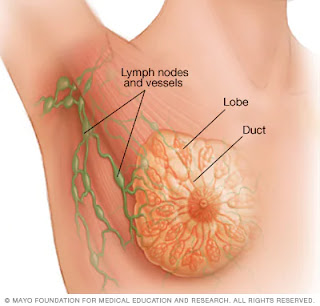Do You Know the Symptoms of Women's Cancers?
Learning how to spot the signs could save your life.
Would you know if you had symptoms of ovarian cancer? There isn't any routine screening test to detect this cancer. More than 60% of women are diagnosed after their cancer has already spread—when their odds of surviving five years are less than 30%.
As familiar as we may be with our bodies, most of us don't know the symptoms of ovarian, cervical, uterine, vaginal, and vulvar cancers, research finds. Missing important symptoms or discounting them as "nothing serious" could delay us from getting the medical care that could save our lives.
Why are so many of us in the dark about cancers that solely affect women? One reason is our general reluctance to talk about sensitive subjects, says Dr. Raymond Lui, an instructor in obstetrics, gynecology, and reproductive biology at Harvard Medical School. "Nobody really likes to talk about cancer in general, and cancer of the genital tract especially is not a common topic of conversation," he says.
Lack of awareness
We rarely hear about gynecologic cancers in the media, either. When it comes to cancers that affect women, breast cancer monopolizes the spotlight. An abundance of media attention has helped many women understand the risk factors and know the steps to spot breast lumps, yet many of us have no idea how to recognize the signs of ovarian or uterine cancer.
Despite their lack of attention, gynecologic cancers need to be taken seriously, too. More than 82,000 women are diagnosed with cervical, ovarian, uterine, vaginal, or vulvar cancer each year. Cervical cancer is the only one of these cancers with a routine screening test (the Pap test).
Spotting symptoms
It's up to us to be vigilant and report any suspicious symptoms to our doctor. Spotting the signs of cancer can be a tricky proposition, though. For example, bloating could be a symptom of ovarian cancer, but it can also simply indicate that you've eaten too much. Unusual vaginal bleeding is an obvious concern when you're several years postmenopausal, but if you're just starting menopause, when periods are erratic, it could be perfectly normal. So how do you tell the difference?
The duration of symptoms is an important clue. "A lingering, nagging symptom" that doesn't go away could be significant, says Dr. Lui.
Know your risks
Knowing your risks, including your family history, is also important—especially because some cancers don't develop symptoms until they've already started to spread. "If you have a strong family history of a gynecologic cancer, that would be a good reason to have more screening, or at least to pay close attention to symptoms," Dr. Lui says.
No matter your risk profile, if you're having any new or troubling symptoms, call your gynecologist or primary care provider for an evaluation.

